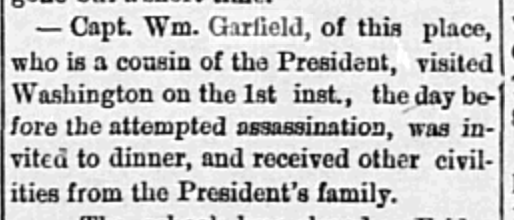Today the Bass River Lighthouse is part of the The Lighthouse Inn located in West Dennis. But there was a time when its beacon was vital to the safety of mariners sailing the southern coast of Cape Cod. When government officials underestimated its importance and extinguished the light in 1880, a local sea captain took it upon himself to use a distant family connection to try and change their decision.
During the nineteenth century Bass River was one of the more important shipping centers on the southern coast of Cape Cod. South Yarmouth and West Dennis sea captains, who were essential to the local economy, anchored their vessels in an area of deeper water, known as Deep Hole, just outside the mouth of the river. Coasters heading to and from Boston or other Cape ports often anchored there as well awaiting favorable winds and tides.
Prior to 1855, ships sailing thru the region were aided by a dedicated West Dennis resident named Warren Crowell. Every night without fail Mr. Crowell lit a kerosene lantern and hung it in the attic window of his home on Wrinkle Point so mariners would have a landmark to help with navigation. Sea captains living in the vicinity were so appreciative to have this light, that many contributed 25 cents a piece annually to purchase kerosene for Mr. Crowell's lantern.
Wrinkle Point.
Bass River maritime activities flourished during the 1850s to the point that a shipyard was even established for the construction of new vessels. Officials soon acknowledged the increase in shipping traffic in the area and decided a lighthouse was needed. On September 28, 1850 Congress appropriated $4,000 to build Bass River Light.
A strip of land, then called Follins Island, located east of the mouth of the river was selected and the land was purchased from shoemaker George Richardson. Several teams of oxen were used to haul materials over the salt marshes and thru the dunes. In early 1855 construction was completed on the two story wood framed building with a lantern mounted on the roof. On April 30, 1855 the lighthouse, complete with a fifth-order Fresnel lens that could be seen up to eleven miles out to sea, was officially lit.
For the next twenty-five years the bright white light emitting from the lighthouse helped mariners navigate through the local waters. Appropriately, the fore-mentioned Warren Crowell was selected as the first light keeper. Crowell, along with his wife and children (which eventually numbered nine) moved into the dwelling and he served his post diligently for the next eight years. In 1863 he took a leave of absence to enlist in the Union Army where he was wounded and taken prisoner in Virginia. He eventually returned to Dennis after the war and was able to resume his position. Two other men, Captain James Chase and Zelotes Wixon also helped watch over the lighthouse during the next seventeen years.
In 1880, when Stage Harbor Light was built about ten miles down the coast in Chatham, the U.S. Government felt, incorrectly, that Bass River Light was no longer needed. Funding for operation of the light was not renewed and on August 1st of that year, despite public protest, the light was turned off. On September 1st it was ordered to be sold at auction, where a Captain William White of South Yarmouth purchased the structure for $400.
The decision to extinguish the light did not sit well with the local sea faring community who decided that actions needed to be taken. Captain William Garfield of West Dennis felt a distant family member could be of some assistance in the matter. It seems Garfield was not originally from Cape Cod. He had been born in Ohio and a member of his extended family was none other than James A Garfield, the newly elected President of the United States.
In one of his letters to the new President, written in early 1881, Captain Garfield explained the local feeling on the importance of the light. "I drop you a line or two again on account of a Light House we have here that has been standing for twenty-five years and last October was put out by the Lighthouse Board. We have sent in a large partition for them to relight it again. Our Harbor is one of the best that there is in Vineyard Sound. All vessels come in here in bad weather and no light makes it bad for large vessels. When you git to Washington and git everything working, well then, we shall write you and see if you can do anything for this Lighthouse."
The Captain's letters apparently struck a chord with President Garfield as upon arriving in Washington D.C. he personally looked into the matter. In June 1881 the President sent a letter to the Captain inviting him to come to the White House for dinner. The little village of West Dennis must have been a-buzz with excitement to have one of their residents dining with the President of the United States.
Captain Garfield left for Washington via train with two of his teenage daughters, Esmilda age 15, and Addie age 13, by his side. On the evening of July 1st they arrived at the White House for their dinner with the President. When the meal was over the young ladies were given a tour of the executive mansion while the men relaxed with an after dinner cigar. The President proudly explained that Bass River Light was being relit by his executive order. It seems after receiving the captain's letters earlier that year, the President had convinced members of Congress to appropriate funds to purchase back and re-establish the light.
President James Garfield
Following its re-lighting, Bass River Light continued to assist mariners for another three decades. But starting in early 1914 there was a noticeable decrease in local ship traffic in the area and with the newly constructed Cape Cod Canal set to be opening soon, the closing of the lighthouse was being openly discussed. When an automatic light was established on the west side jetty at the entrance to Bass River later that year, its fate was sealed. On June 14th, 1914, after nearly sixty years of valuable service, Bass River Light was officially closed.
The automated light on Bass River.
Over a hundred years have passed since Bass River Light was last used as a year round light station. Thru the years it was bought and sold, left unoccupied for a short period of time, and even moved from its original location. When the Stone family purchased the building in 1938 they saw its potential as a destination for weary tourist in need of a good meal and some seaside relaxation. Members of the family have continued to own and manage it. Today as an inn and restaurant it has become a Cape Cod landmark to tourists and locals alike.
In 1989, in conjunction with the 200th anniversary of the U.S. Lighthouse Service, the light was relit. Officially designated “West Dennis Light” it continues to run as a seasonal navigational aid during the summer months and is the only privately owned and maintained working lighthouse in the country. But history will remind us that its major contribution was to the thousands of mariners who used its light to guide them safely during the golden age of sail. Because of the actions of the cousins Garfield and others in 1881 the light was allowed to remain active for an additional thirty-three years. This undoubtedly saved the lives of many men and women who may have otherwise been lost to the sea. Captain William Garfield and Warren Crowell both rest in a sleepy West Dennis Cemetery less than a mile from The Lighthouse Inn.
Researched and written by William Painter









